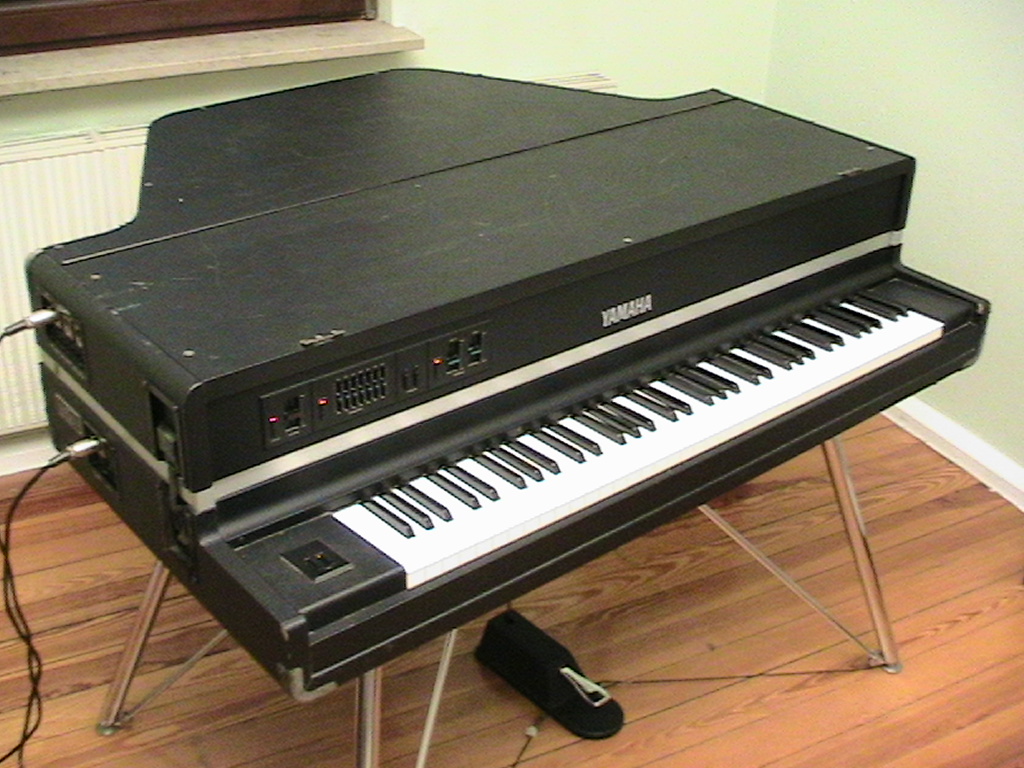
Yamaha CP-70
The Yamaha CP-70 is an electric piano manufactured by Yamaha Corporation between 1976 and 1985. The instrument was based on earlier electric piano technology, but took advantage of improved pickups along with the company's longstanding experience in manufacturing acoustic pianos.
Yamaha CP-70
The new technology and a lack of a soundboard gave it a more accurate emulation of an acoustic piano than earlier models. It was well received and used by a number of musicians in the late 1970s and early 1980s, including the Grateful Dead's Keith Godchaux and Genesis' Tony Banks. It continues to be used in the 21st century by a number of artists, and it is still possible to buy replacement parts.
Background[edit]
There had been numerous attempts to manufacturer a piano that was both portable and sounded like the acoustic grand model. Benjamin Miessner had been working on pickup and amplification techniques since the 1930s, and discovered that capturing the harmonic information and nuances of sound was difficult and changed as pickup positions and configurations were altered.[6] Yamaha had been working on pickup technology since World War II, and took advantage of Japanese culture at the time which permitted research information to be exchanged between companies without threat of intellectual property lawsuits, as in the US.[3] They used this knowledge to create a series of robust piezo-electric pickups, and combined it with their experience in manufacturing acoustic pianos to make an electric instrument.[3]
The CP-70 was first manufactured in 1976, and cost $4,000.[4] According to Toto's David Paich, Yamaha invited a group of pianists in Los Angeles to test the instrument before manufacturing. After playing, they were "just freaking out over it".[2] The first model had problems with tuning, and an upgraded version, the CP-70B, was introduced at the NAMM Show in 1978, along with the CP-80, which featured a full 88-note keyboard.[5] The CP-70D and CP-80D models featured a graphic equaliser and an effects loop. The final models to be released were the MIDI equipped CP-70M and CP-80M, which were released at the end of 1985.[4]
Maintenance[edit]
The CP-70B and later models have very stable tuning, compared to other electric pianos. The lack of a soundboard means that vibration from transport and humidity is unlikely to change the sound.[7]
Because the CP-70 uses custom-made strings, sourcing new ones can be problematic. Each iteration of the instrument used a different type of string, although some of the treble strings can be replaced with standard ones from an acoustic piano. As of 2019, there were two companies in the US supplying the appropriate custom strings for the CP-70.[8]